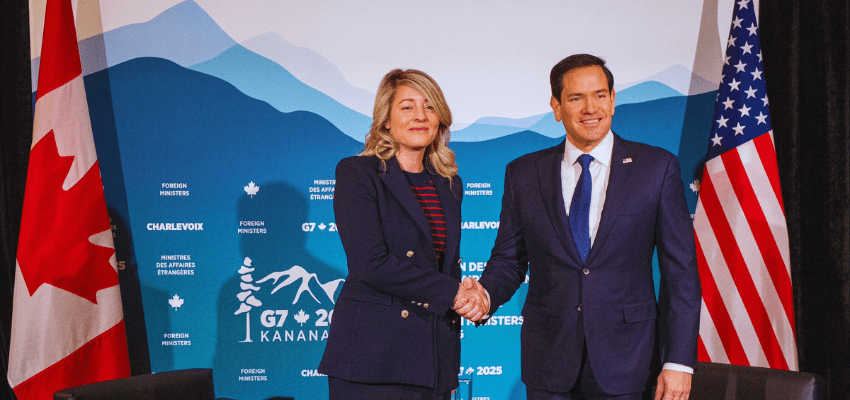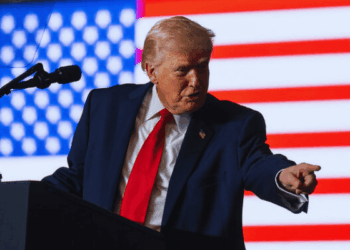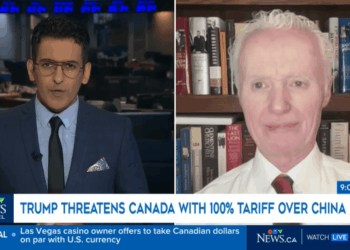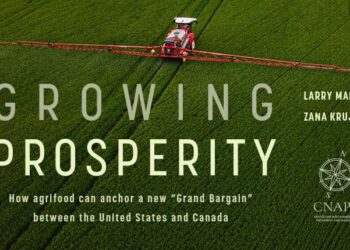This article originally appeared in the Globe and Mail.
By Richard Fadden, March 19, 2025
Sun Tzu and Machiavelli – two of history’s greatest experts on power – were of the view that countries or leaders could only achieve success if they had self-awareness of one’s strengths and weaknesses. “If you know the enemy and know yourself, you need not fear the result of a hundred battles. … If you know neither the enemy nor yourself, you will succumb in every battle,” Sun Tzu wrote.
It is as valid a proposition today as it was in their times, and self-awareness is likely attained as rarely as it was in ancient China or Renaissance Italy. Indeed, neither Canada nor the United States get great marks for self-awareness today.
Canada is arguably one of the best countries in the world to live in, but this has contributed a great deal to our failure to clearly see ourselves and our environment. Our safe location in North America between oceans and our long-time advantages with our proximity to the United States have made our governments poor at fulfilling all the functions of a nation state. On social policy, we arguably have done well in a couple areas and on economic policy we do okay, even if we lack diversification in our markets beyond the U.S. But on national security, broadly defined, successive governments have been content to coast on the work of others. We have gone from being a major contributor to Allied victory in the Second World War to being a solid partner in the Cold War to being a country that only really takes its security seriously when faced with a crisis such as 9/11 and the war in Afghanistan.
On one level, it is understandable why so many federal governments have set foreign affairs, defence and security as low priorities. Why worry about these things when there are more votes to be won elsewhere? But we should expect governments to promote the security of the country at all times. Even now, in the face of U.S. tariffs and other aggression, the Liberal government is doing little to protect our interests in the medium- to long-term, and even seems prepared to defend the indefensible in the face of tariffs: our supply management system. The Conservatives appear equally reluctant to discuss that, or even engage in serious debate about our medium-term national security.
Even with some notable lapses – particularly recently, under President Donald Trump – the United States must be viewed as one of the more benign and successful imperial powers in history. The first main reason for this is the repeated American practice of seeing their success in the success of others. The postwar reconstruction of Europe is the best example of this. The second reason is America’s historical ability to recognize that allies and alliances are power multipliers. While the U.S. has undoubtedly thrown its weight around, it has succeeded more often than not by deploying the soft-power proposition that it was pursuing the success of all. This may not have been entirely true all the time, but at the strategic level, it is much more than a working hypothesis.
Events in the United States have endangered this international rules-based order and the peace and prosperity of the planet as we know it. Canada and any number of other Western countries must clearly and unambiguously recognize these changes – but so must the United States, because the U.S. has benefited as much, if not more than, most countries from these arrangements. Going back to the way things were seems an unlikely objective, so governments must now seek to define the world they want and lay out how they plan to get there.
For Canada, it means finding political leaders who will prioritize this exercise and acknowledge that for some time, foreign affairs, defence and security will demand the government’s immediate attention. Since many Canadians still do not acknowledge this, old-fashioned leadership and statesmanship will be required.
For the U.S., Mr. Trump seems determined to throw out the baby with the bathwater. There is little evidence to suggest that the U.S. government is considering the unintended medium- to long-term consequences of executing the President’s promises. Unfortunately, the West’s strategic adversaries are noticing – as are many countries that have suddenly discovered that decade-long alliances are now worthless. And to be blunt, America’s two great international advantages are being squandered, even though much of what Mr. Trump wants could likely be accomplished without breaking quite so many eggs.
Sun Tzu and Machiavelli got it right: Self-awareness is key.
Richard Fadden is a former national security advisor to the Prime Minister and a Center for North American Prosperity and Security (CNAPS) advisory council member.








